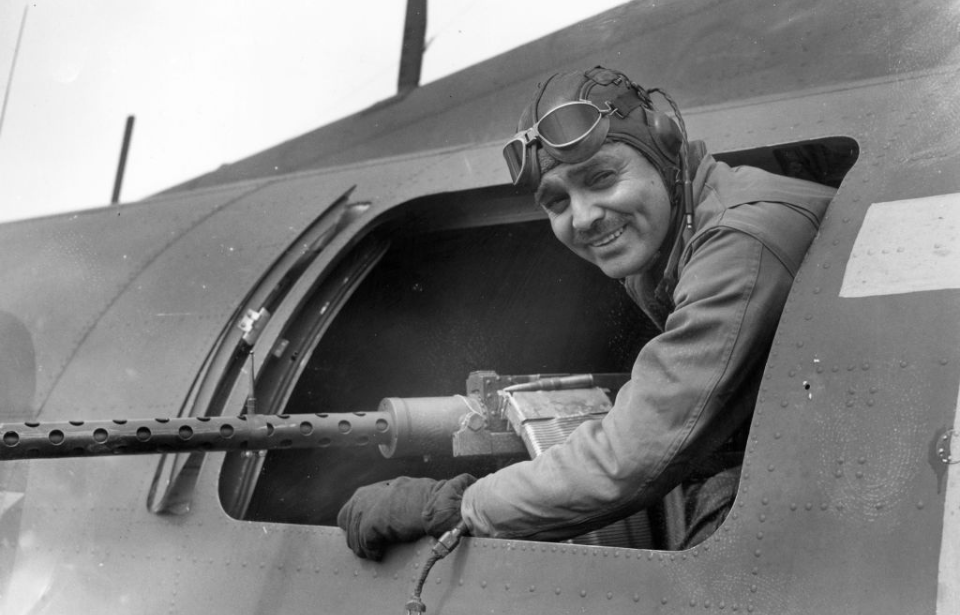A number of famous actors have served in the US military. While the majority of them went off to war prior to finding fame, there were some who paused their illustrious careers to serve their country, such as Henry Fonda, James Stewart and Clark Gable. The latter, in particular, was arguably the most recognizable male star in the world when he opted to do his part and enlist with the US Army Air Forces (USAAF).
Clark Gable was raised in Ohio
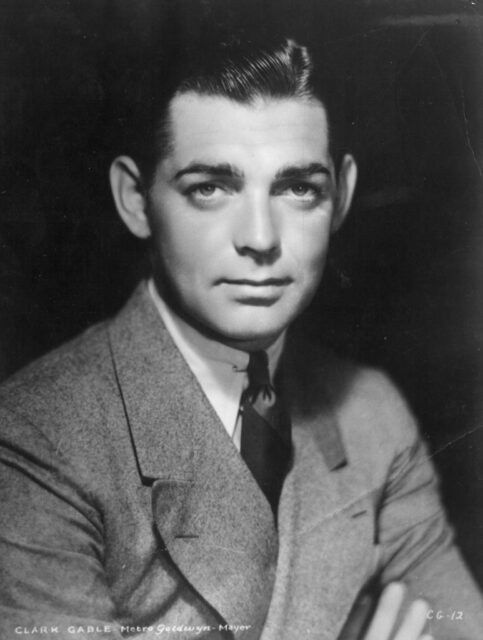
William Clark Gable was born in Cadiz, Ohio, on February 1, 1901. His mother passed away when he was only 10 years old, and his father, for whom he was named, worked as an oil driller. The elder Gable wound up remarrying to a woman named Jennie Dunlap, who gave Clark music lessons, and his skills afforded him the distinction of being the only boy (he was 13) to play in the Hopedale Men’s town band.
When he was 17, Gable decided he wanted to become an actor, after seeing The Bird of Paradise on stage. He didn’t have the easiest time doing so. His stepmother died, and he went to work in the oil fields with his father and as a necktie salesman. It would take another four years for him to properly get his start, thanks to an inheritance from his mother’s family.
Beginning his acting career
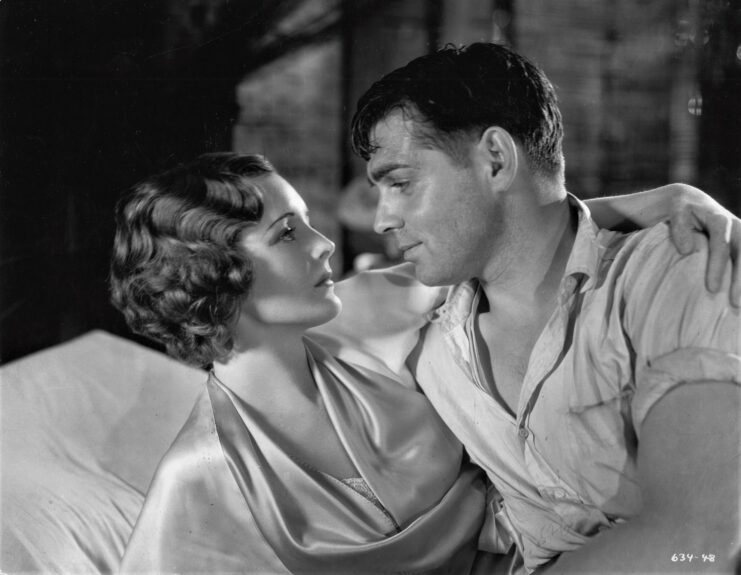
Clark Gable joined a traveling theater company that wound up going bankrupt, leaving him stuck in Montana. After hitchhiking to Oregon, he met Josephine Dillon, an actor and acting coach who’d later become his first wife. She taught Gable what he needed to know to become a sought-after actor, and the pair journeyed to Hollywood in 1924.
Opting to perform under his middle name, Gable began his career as an extra in a number of silent films and shorts, but failed to secure any major roles. This led him to return to the stage for the 1925 production What Price Glory?, with him finding support from celebrated actor and director Lionel Barrymore.
It was in the 1930s that Gable finally made an impression in Hollywood, signing with Pathe Pictures, before moving on to Warner Bros, then MGM. With the latter, he appeared alongside the likes of Joan Crawford and Norma Shearer. The Hollywood Reporter wrote at the time, “A star in the making has been made, one that, to our reckoning, will outdraw every other star… Never have we seen audiences work themselves into such enthusiasm as when Clark Gable walks on the screen.”
Gable’s career took off like a rocket. He appeared in several films alongside Jean Harlow, the most notable being Red Dust (1932). In 1934, he won the Academy Award for Best Actor for his performance in It Happened One Night, which he’d film while on loan to Columbia Pictures.
The actor also made three movies with Spencer Tracy that established the duo as box office magic, and, in 1939, he appeared in his most famous role: Rhett Butler in Gone With the Wind. The film, which saw him star alongside Vivien Leigh, made Gable a top leading man for the rest of his career.
A whirlwind romance with Carole Lombard
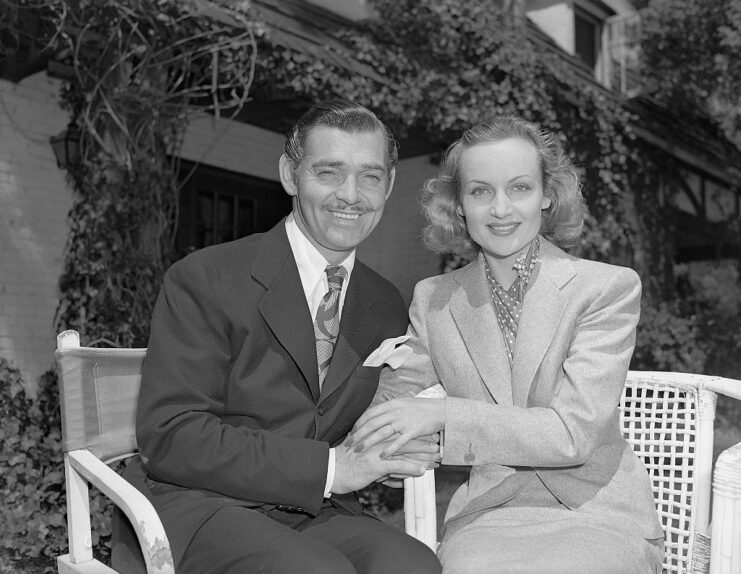
Clark Gable’s personal life was also on a high during this time. In 1939, he married his third wife, actor Carole Lombard, who was the love of his life. The pair had appeared together in 1932’s No Man of Her Own, but it hadn’t been until a party four years later that a romantic spark occurred.
Around the time they’d wed, the world was embroiled in the Second World War, and the pair spent much of their free time selling war bonds to raise money for the war effort. Lombard was particularly dedicated to this venture, and it was while returning from one rally that the famed actor would tragically (and unexpectedly) lose her life.
On the evening of January 16, 1942, Lombard was returning to Los Angeles, California, from a rally. The Douglas DC-3 she was aboard stopped to refuel in Las Vegas, Nevada, and took off shortly after. However, the Transcontinental and Western Air (TWA) aircraft crashed into a small cliff on Potosi Mountain, instantly killing all 22 passengers and crew onboard.
Lombard was declared the first war-related American female casualty of the war as a result of the crash. Upon hearing about the incident, Gable traveled to Las Vegas in the hopes his wife was still alive, but all that could be found of her was a strand of blonde hair. The actor was reportedly never the same following her passing.
Clark Gable enlisted in the US Army Air Forces (USAAF)
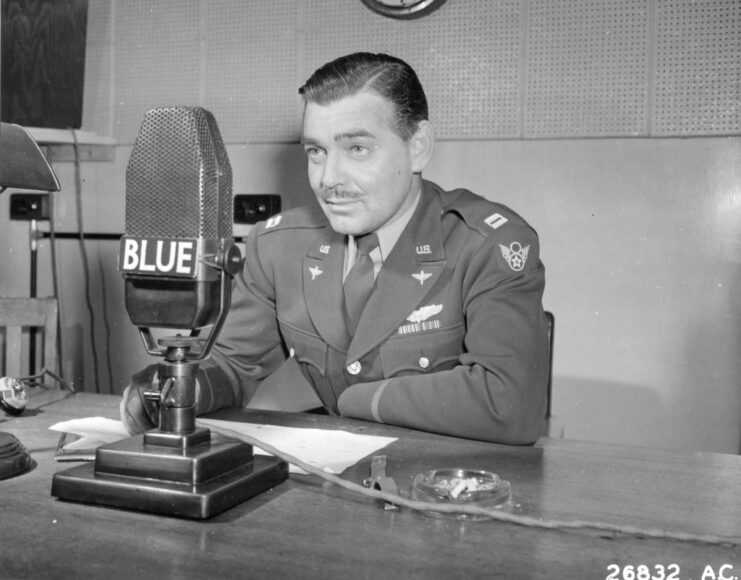
After the Japanese attack on Pearl Harbor and before her death, Carole Lombard had sent a telegram to US President Franklin D. Roosevelt on Clark Gable’s behalf. The president responded that her husband could best serve the country by making promotional films and selling war bonds. After Lombard’s death, however, a distraught Gable enlisted in the US Army Air Forces.
Despite being 41 years old, Gable expressed an interest in attending officer candidate school (OCS), which would ultimately allow him to join the bomber training school to become an aerial gunner. He was initially offered a higher rank, given his celebrity, but he wanted to work his way up through the ranks like any average soldier and thus was made a private.
A member of the First Motion Picture Unit (FMPU), Gable was sent to Britain to film the propaganda movie Combat America (1945), after which he was assigned to the 351st Bombardment Group at Briggs Army Air Field, Texas. Part of the famed Eighth Air Force, he and his comrades were stationed at RAF Polebrook.
Flying combat missions in a Boeing B-17 Flying Fortress
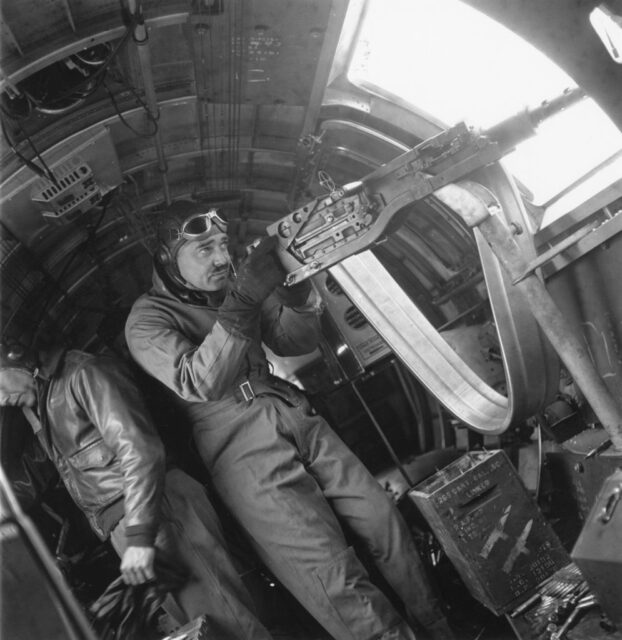
Clark Gable flew five combat missions as an observer-gunner – although, most remember more. While he was primarily tasked with capturing combat footage, he did participate in some action. The first of his raids occurred over Belgium on May 4, 1943, during which he fired a few shots from his M2 Browning machine gun and suffered frostbite. The second and third were equally as uneventful, taking place over France and Norway, respectively.
The fourth raid was arguably the most dangerous. Occurring on August 12, 1943, over Germany, it saw him serve as the gunner aboard the Boeing B-17 Flying Fortress Ain’t That Gruesome. During this particular engagement, a 20 mm shell broke through the flight deck, coming so close to hitting Gable that it took off the heel of his shoe.
The fifth mission was rather uneventful, given the poor weather. Occurring on September 23, 1943, Gable was charged with manning the B-17‘s nose gun, but when half of the group failed to join up, he and his fellow airmen returned to base.
The Germans were aware that Gable was serving in the skies over the European Theater, and it’s alleged that the Reichsmarschall offered a substantial cash reward for his capture, as he was one of the Führer‘s favorite actors. According to Gable’s son, John, the actor had actually been worried that he’d be paraded around in propaganda films, should someone successfully take him hostage.
Clark Gable’s service ended in the United States
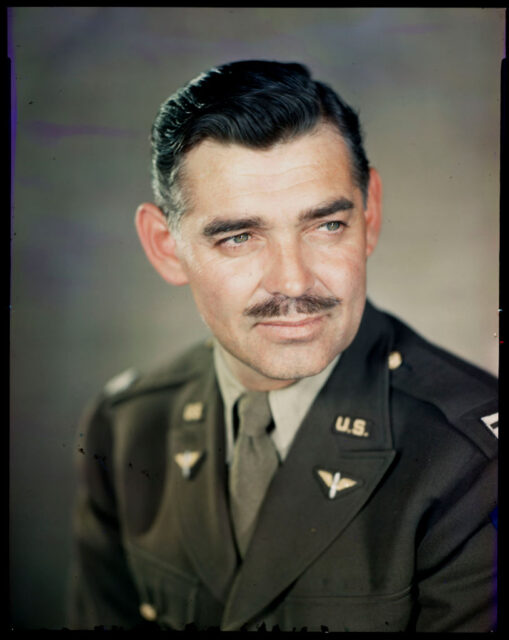
After news of the flights reached MGM, the studio’s executives began to badger the US Army about removing Clark Gable from combat, meaning his days in the skies were over. In November 1943, he returned Stateside to edit his footage into what would become Combat America and was assigned to the 18th AAF Base Unit in Culver City, California.
While he’d hoped to be redeployed to Europe, it appeared his combat days were over, as he was placed on inactive duty. On June 12, 1944, the then-major had his discharge papers signed by Capt. Ronald Reagan, with him fully resigning his commission in ’47.
For his service during World War II, the actor received several decorations: the Air Medal, the Distinguished Flying Cross (DFC), the European-African-Middle Eastern Campaign Medal, the American Campaign Medal and the World War II Victory Medal.
Post-war film career
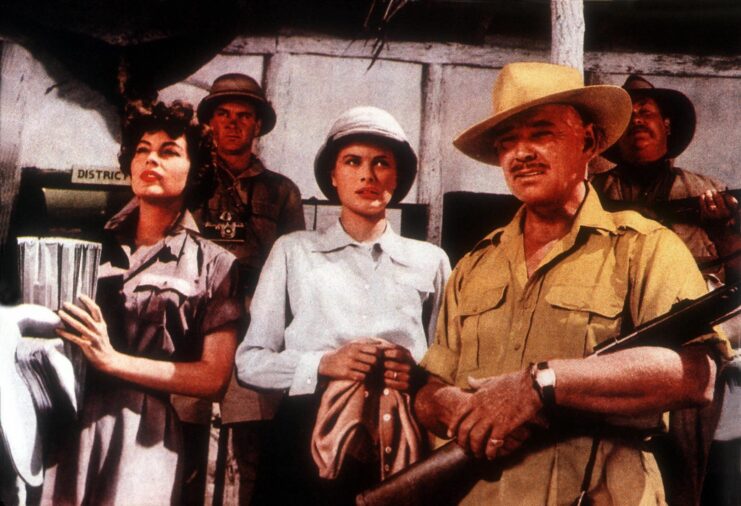
Clark Gable’s first major motion picture release following the Second World War was 1947’s Adventure, in which he starred as Harry Patterson. That same year, he appeared in The Hucksters, alongside Ava Gardner and Deborah Kerr.
As the 1940s gave way to the ’50s, Gable continued to appear in big-budget productions, including Never Let Me Go (1953) and Mogambo (1953). After leaving MGM, he partnered with 20th Century Fox for Soldier of Fortune (1955) and The Tall Men (1955), after which he made the move to Paramount. In 1958, he appeared alongside Burt Lancaster in the war film Run Silent, Run Deep and, in ’60, co-starred in It Started in Naples with Sophia Loren.
Gable’s last film, The Misfits was released in 1961 and saw him act alongside Marilyn Monroe. It was released posthumously. The previous year, he’d received a star on the Hollywood Walk of Fame.
Clark Gable died a Vintage Hollywood icon
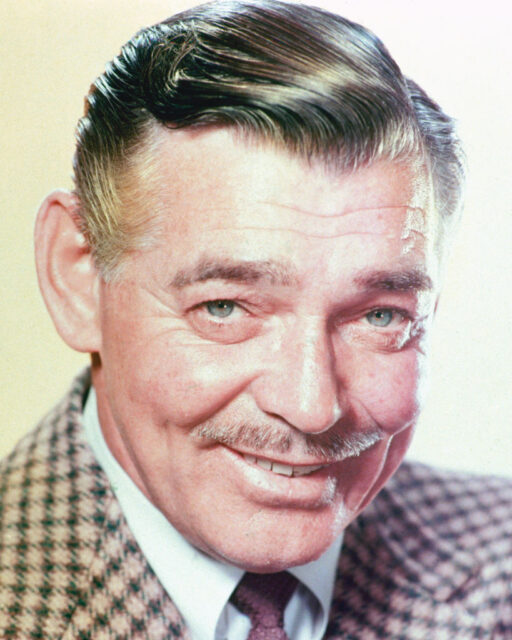
Throughout his life, Clark Gable was known for being a ladies man, having been married five times. He had two children, one of whom was actor, writer and therapist Judy Lewis, who passed in 2011. She was born out of Gable’s affair with Loretta Young, with many describing her as his “secret” daughter.
More from us: Before Becoming a Big-Name Actor, Richard Todd was a Paratrooper Who Fought at Pegasus Bridge
On November 6, 1960, Gable suffered a heart attack and was transported to Hollywood Presbyterian Medical Center, where he was kept for treatment. While he’d appeared to be improving, he suffered another, this time fatal, heart attack on November 16, the cause of which was later deemed to be an infection.
